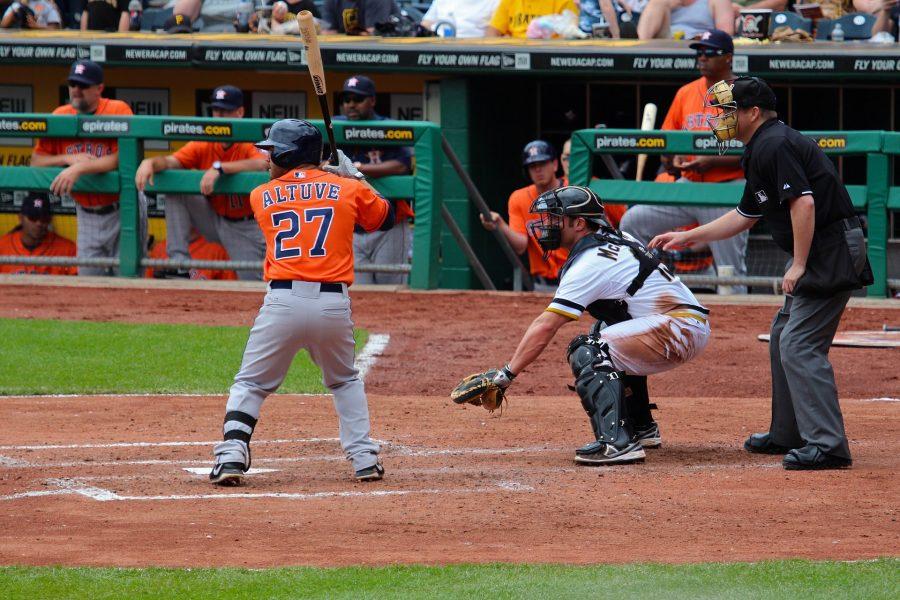On Nov. 12, 2019, with the testimony of Mike Fiers, ex-pitcher for the Houston Astros, The Atlantic reported that the Astros used technology to illegally steal signs during the team’s championship season in 2017. According to The Atlantic, the Astros placed a camera at center field, focused on the opposing catcher. The camera feed went directly into the Astros’ clubhouse, where players and coaches could figure out the signals and provide the batter with the type of the incoming pitch.
After a long investigation into these allegations, the MLB commissioner, Rob Manfred, finally issued a hefty punishment to the Astros. General manager Jeff Luhnow and manager A.J. Hinch were suspended for the 2020 season. The team lost four draft picks and was fined $5 million. As a result of the suspension, the Astros fired Luhnow and Hinch, the Boston Red Sox fired their manager and former Astros bench coach Alex Cora and the New York Mets fired their newly hired manager and former Astros outfielder Carlos Beltran due to their roles in the cheating scandal. Cora and Beltran were the ringleaders of the scandal and communicated the information from the front office to the players.
Undoubtedly, the punishments issued to Luhnow and Hinch were harsh; both cannot work in the MLB until their suspensions are cleared following the 2020 season, they will not receive pay for this season and most importantly, their legacies have been tainted by the cheating scandal, making it nearly impossible for them to find employment in the MLB once their suspensions are completed. Also, the loss of four draft picks hurts the Astros, a team that is mostly built through the draft.
Unfortunately, Manfred failed to punish the most responsible party: the players. Cheating in baseball has always been a problem. The Chicago White Sox in the 1919 World Series and the MLB leader in base hits, Pete Rose, were caught fixing games; hitters, such as Chicago Cubs slugger Sammy Sosa, were caught for using corked bats, pitchers were caught for using illegal foreign substances to improve their pitching and numerous all-stars were caught for using performance-enhancing drugs. However, in each of these cases, the players were punished.
In Manfred’s investigation report, he writes that “most of the position players on the 2017 team either received sign information from the banging scheme or participated in the scheme by helping to decode signs or bang on the trash can.” Yet, he punished upper management since they “are responsible for ensuring that the players both understand the rules and adhere to them.”
A player-based punishment would be ideal; it would send a message to the league. Everybody must deal with the consequences of cheating, considering that an entire team of players was involved with the sign-stealing scandal. Furthermore, stripping the Astros of their 2017 Championship would be a deserving punishment. Using this method of sign-stealing, the Astros had an unfair advantage in pursuit of their World Series ring. Although it would be merely symbolic, it would show that the Astros do not deserve their status as a World Series champion.
Sadly, suspending every player involved in the cheating scandal would be messy, unprecedented and impossible. Since every player on the 2017 Astros benefited from the cheating, punishing each player would have been a nightmare. The MLB Players Association struck an agreement with the league early in the investigation that granted immunity to the 23 current and former Astros players who agreed to testify. By granting immunity, Manfred expressed his desire for a conflict-free investigation. As a result, Manfred issued the harshest punishment in MLB history and allowed the actual offenders to walk away scot-free.
At the end of the day, Manfred’s punishment was severe, yet not enough. Under new management, the Astros will enter the season with a talented, suspension-free roster and a chance for another championship run.
A version of this article appears in the Monday, Feb. 3, 2020, print edition. Email Arvind Sriram at [email protected].

























































































































































